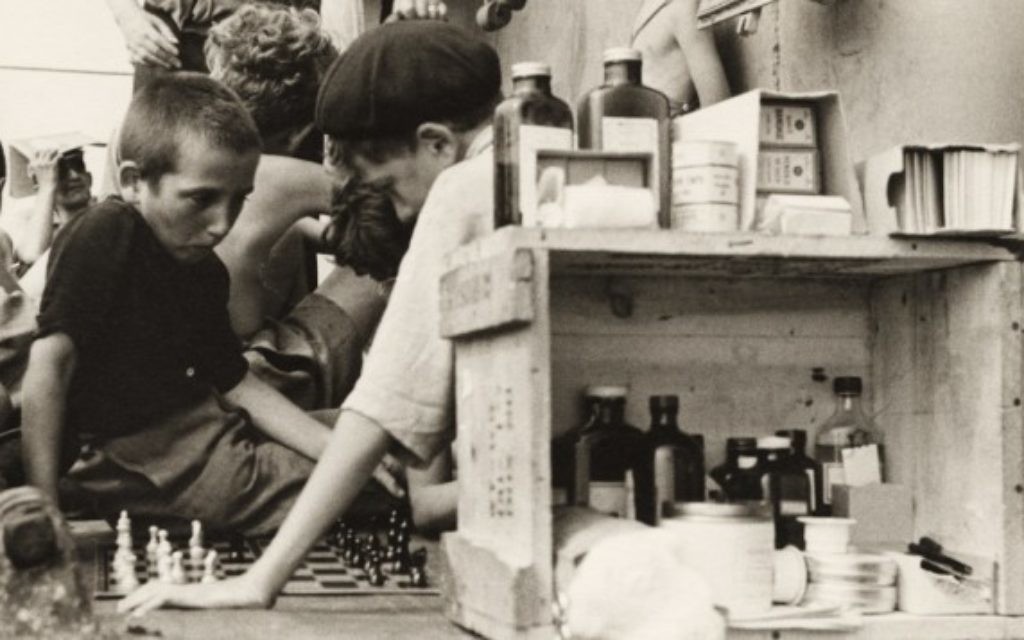My Family’s Unforgettable Refugee Story
Relatives were on the Henry Gibbins, the only refugee ship the United States allowed in during World War II.

The simple definition of immigrants that my daughter brought home in second grade disqualified me, an arrival from Canada, from participating in the family project she had been assigned.
“Immigrants are people who came here by boat,” she explained. She was too young then to hear the immigration story that brought some members of our family to the United States on a truly exceptional boat.
Four of my mother’s cousins were among 983 refugees who boarded the Henry Gibbins in Italy and made their way across the Atlantic in 1944. What made the Henry Gibbins so exceptional was that it was the only boat of refugees allowed to land in the United States during World War II.
Get The AJT Newsletter by email and never miss our top stories Free Sign Up
By the time they boarded the ship, my family had been on the run from the Nazis for quite some time. Even before the active occupation of Yugoslavia in 1941, Nazi sympathizers executed my great-grandfather and one of his sons-in-law, along with other Jews, galvanizing attempts by the family to seek refuge elsewhere.
My grandfather made his way to Palestine, while his sisters and their families fled west. There were near-misses and difficult moments as the family did their best to avoid capture by Nazis and their sympathizers.
In 1944, war still raged in the Atlantic. There was no guarantee that the ship would make it. The passengers on the Henry Gibbins were willing to risk their lives because the alternative was nearly certain death. These were the hunted survivors of brutality and hatred.
And yet, when they arrived in the United States, they were met with suspicion. These people who had lost all were seen as a potential threat.
All the passengers on the Henry Gibbins were interned in a refugee camp in Oswego, N.Y.
The children were allowed to attend the local public school but had to return to the camp at night.
The adults were not permitted to work. They were in the United States but not in the United States, their threat to the country deemed too great.
To look at my mother’s cousins and their descendants today, it is hard to imagine this family as anything but fully American. After the war, they stayed in the United States. Some served in the military. Some went on to higher education and professional schools. Others opened businesses.
At a recent family simcha, as I watched the older generation chatting easily and dancing, I found myself wondering what America had so desperately feared from these people, from my family.
It is not an idle question. While two of my grandfather’s sisters and their children were able to settle in the United States, two others were not permitted to do so. Fear of too many and the wrong kind of refugees broke the family apart.
As it happened, the second branch of my family was fortunate as well, making their way to Brazil.
As we know, most European Jews seeking haven were not able to find new homes. And as a result, 6 million Jews perished.
But for fear, the story of the Henry Gibbins would not be so exceptional. Fear of Jews from “backward countries” whose “foreign customs and beliefs” were at odds with the narrow vision of what America was and should be prevented Jews from escaping the horrors of the Holocaust.
I share this exceptional family story because today similar language and policies are again common. They are being used to describe other people’s families.
Today it is again common to view refugees with levels of fear and suspicion similar to what my family and so many other Jewish families faced when they needed so much more.
Immigration is by no means as simple as my daughter’s second-grade assignment would have it. Refugees and immigrants are by definition different than we are, coming from different places and circumstances.
The unfamiliar can sometimes make us uncomfortable. But we can learn from the exceptionalism of the Henry Gibbins to fight against the fear because we too were strangers in a strange land.




comments